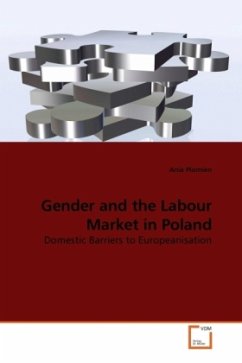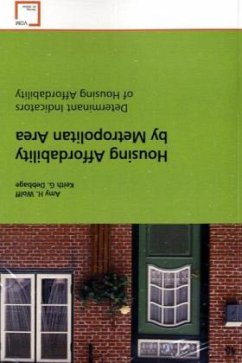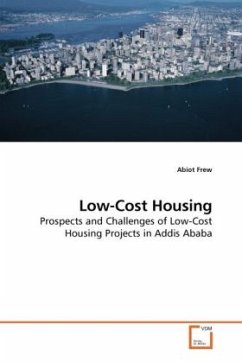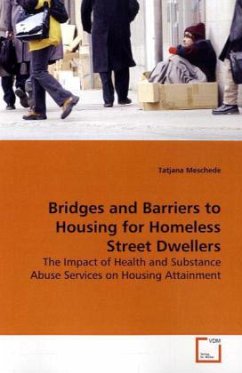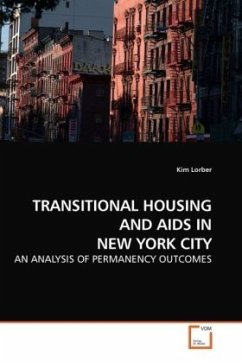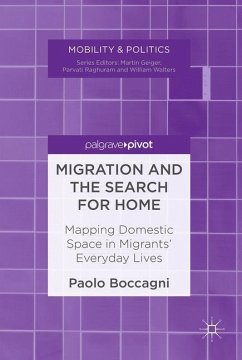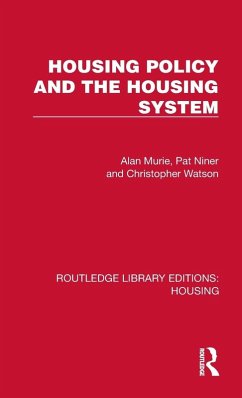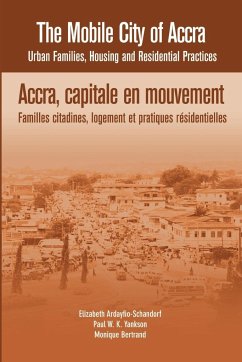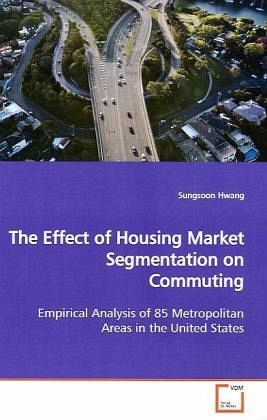
The Effect of Housing Market Segmentation on Commuting
Empirical Analysis of 85 Metropolitan Areas in the United States
Versandkostenfrei!
Versandfertig in 6-10 Tagen
52,99 €
inkl. MwSt.

PAYBACK Punkte
26 °P sammeln!
Spatial sorting of housing market in a metropolitanarea is relatively well studied, but its implicationsin transportation are understudied. Housing marketsegmentation is defined as a degree to which ametropolitan area is divided into spatial housingsubmarkets. The book looks at how housing marketsegmentation is related to commute length at ametropolitan scale. The analysis is preceded bydelineating housing submarkets by fuzzy clusteringmethods, and defining the index of housing marketsegmentation that measures the separation amonghousing submarkets. Results show that metropolitanareas characte...
Spatial sorting of housing market in a metropolitan
area is relatively well studied, but its implications
in transportation are understudied. Housing market
segmentation is defined as a degree to which a
metropolitan area is divided into spatial housing
submarkets. The book looks at how housing market
segmentation is related to commute length at a
metropolitan scale. The analysis is preceded by
delineating housing submarkets by fuzzy clustering
methods, and defining the index of housing market
segmentation that measures the separation among
housing submarkets. Results show that metropolitan
areas characterized by incongruous housing market are
more likely to be associated with longer vehicle
miles of commute while other factors are controlled
for. It is speculated that deepening housing market
segmentation constrains housing choice, and residents
compensate for the constraint by longer commute. The
book will be useful for those interested in land
use transportation interaction and the application of
fuzzy classification to socioeconomic data.
area is relatively well studied, but its implications
in transportation are understudied. Housing market
segmentation is defined as a degree to which a
metropolitan area is divided into spatial housing
submarkets. The book looks at how housing market
segmentation is related to commute length at a
metropolitan scale. The analysis is preceded by
delineating housing submarkets by fuzzy clustering
methods, and defining the index of housing market
segmentation that measures the separation among
housing submarkets. Results show that metropolitan
areas characterized by incongruous housing market are
more likely to be associated with longer vehicle
miles of commute while other factors are controlled
for. It is speculated that deepening housing market
segmentation constrains housing choice, and residents
compensate for the constraint by longer commute. The
book will be useful for those interested in land
use transportation interaction and the application of
fuzzy classification to socioeconomic data.




